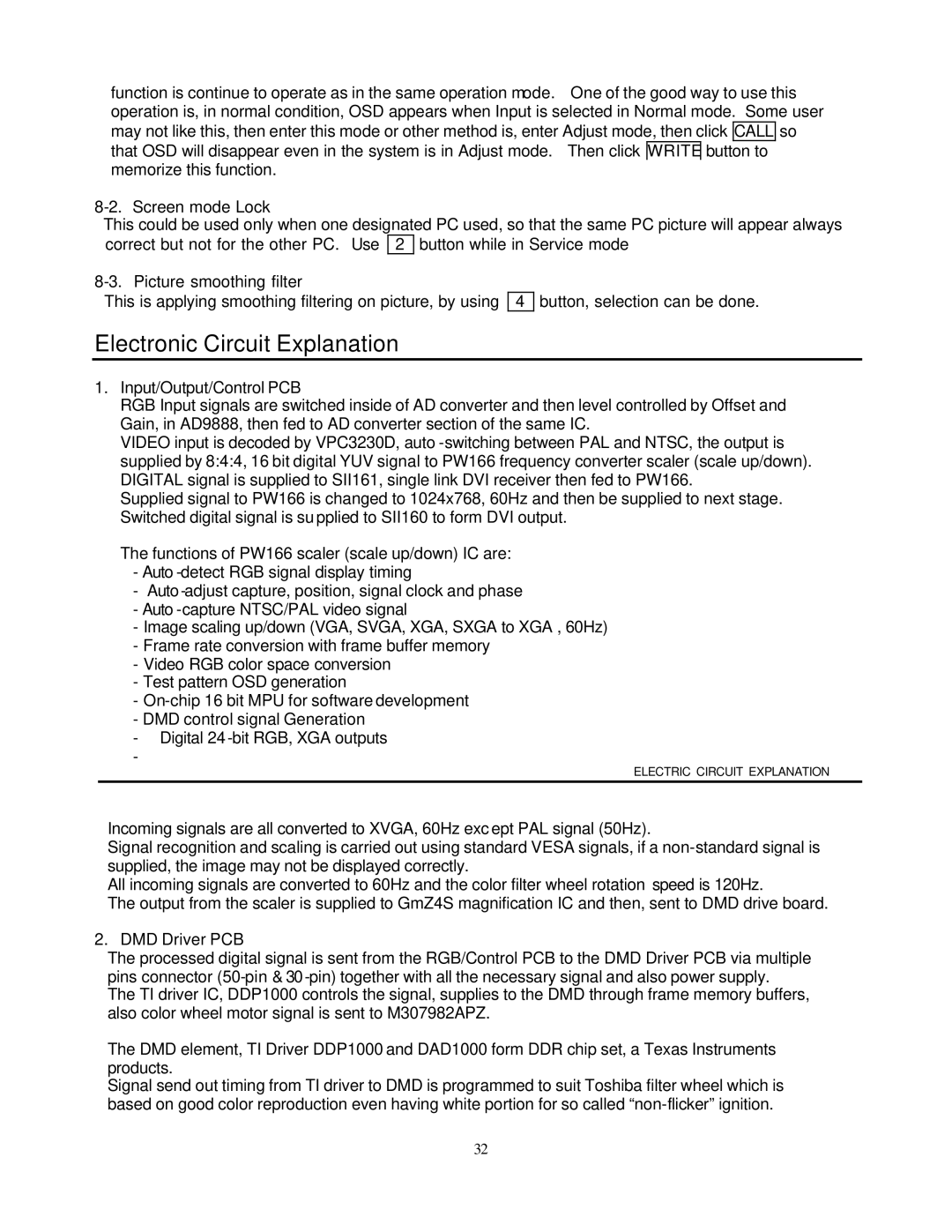
function is continue to operate as in the same operation mode. One of the good way to use this operation is, in normal condition, OSD appears when Input is selected in Normal mode. Some user may not like this, then enter this mode or other method is, enter Adjust mode, then click CALL so that OSD will disappear even in the system is in Adjust mode. Then click WRITE button to memorize this function.
This could be used only when one designated PC used, so that the same PC picture will appear always correct but not for the other PC. Use 2 button while in Service mode
This is applying smoothing filtering on picture, by using
4
button, selection can be done.
Electronic Circuit Explanation
1.Input/Output/Control PCB
RGB Input signals are switched inside of AD converter and then level controlled by Offset and Gain, in AD9888, then fed to AD converter section of the same IC.
VIDEO input is decoded by VPC3230D, auto
Supplied signal to PW166 is changed to 1024x768, 60Hz and then be supplied to next stage. Switched digital signal is su pplied to SII160 to form DVI output.
The functions of PW166 scaler (scale up/down) IC are:
-Auto
-Auto
-Auto
-Image scaling up/down (VGA, SVGA, XGA, SXGA to XGA , 60Hz)
-Frame rate conversion with frame buffer memory
-Video RGB color space conversion
-Test pattern OSD generation
-
-DMD control signal Generation
-Digital 24
-
ELECTRIC CIRCUIT EXPLANATION
Incoming signals are all converted to XVGA, 60Hz exc ept PAL signal (50Hz).
Signal recognition and scaling is carried out using standard VESA signals, if a
All incoming signals are converted to 60Hz and the color filter wheel rotation speed is 120Hz.
The output from the scaler is supplied to GmZ4S magnification IC and then, sent to DMD drive board.
2. DMD Driver PCB
The processed digital signal is sent from the RGB/Control PCB to the DMD Driver PCB via multiple pins connector
The TI driver IC, DDP1000 controls the signal, supplies to the DMD through frame memory buffers, also color wheel motor signal is sent to M307982APZ.
The DMD element, TI Driver DDP1000 and DAD1000 form DDR chip set, a Texas Instruments products.
Signal send out timing from TI driver to DMD is programmed to suit Toshiba filter wheel which is based on good color reproduction even having white portion for so called
32
